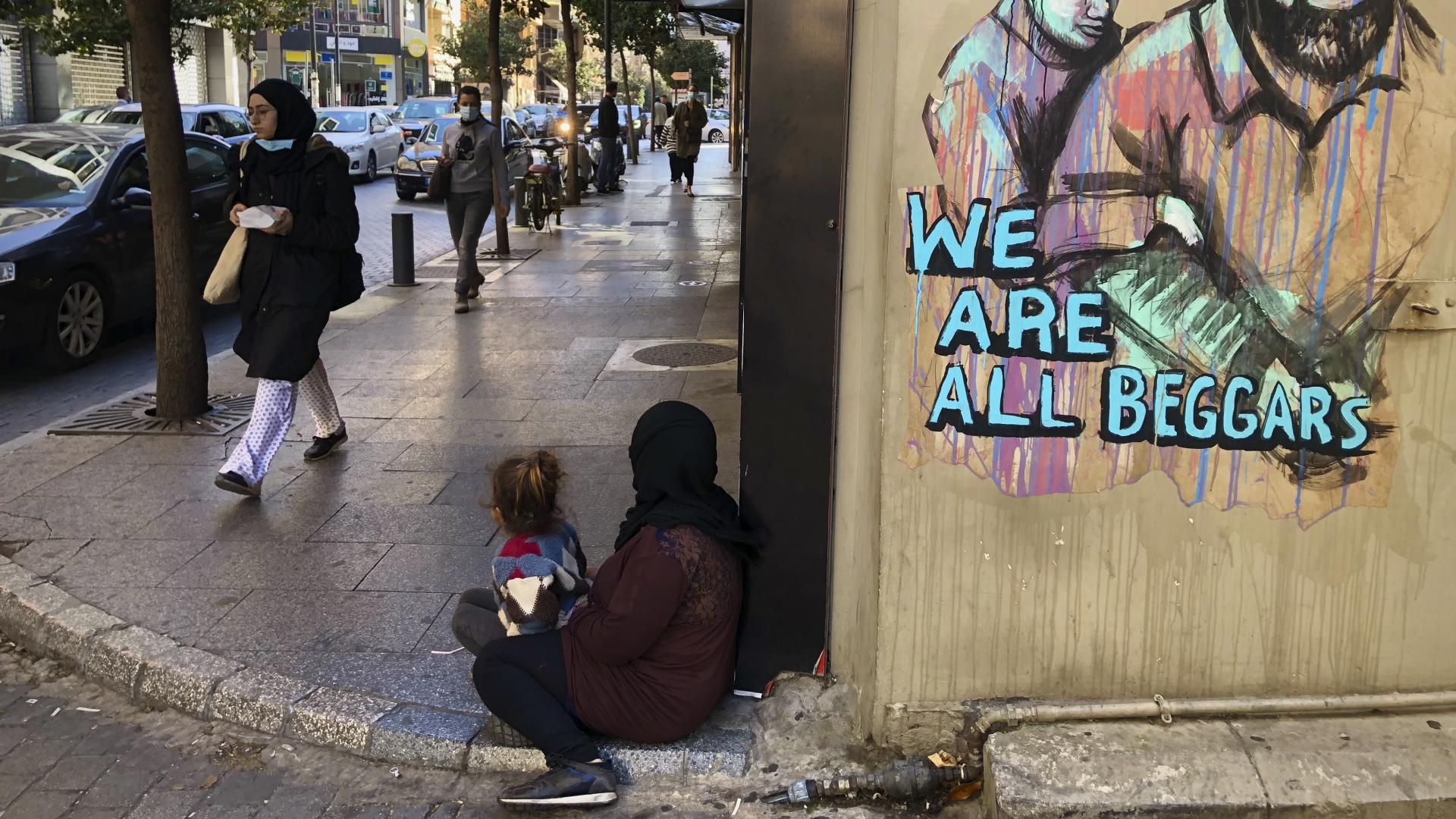Lebanon’s economic decline is rapid: Many families lack the money for a meal together in Ramadan. Volunteers try to alleviate the worst hardship.
By Daniel Hechler, ARD studio Cairo Hind Mouawad is most affected when people come to her who have never asked for money from others in their life. A single father from Beirut, for example, who no longer has a job and does not know how to feed his three children. Often times they can’t go to school because they have to take odd jobs. Still, they don’t have enough money to pay the rent for their run-down apartment on the outskirts of the city. You are threatened with homelessness. With her small organization “Volunteers together”, Mouawad likes to help, whenever she can, and she listens to people’s stories. “What you do is actually the responsibility of the state,” her father tells her after an odyssey through government agencies without any success. He doesn’t want to give his name. She knows how difficult it is for many to accept her help at all. “So many people have lost their pride and are broken,” says the 49-year-old Lebanese woman.
 Hind Mouawad’s initiative helps those in need wherever it can.
Hind Mouawad’s initiative helps those in need wherever it can.
Meals in Ramadan unaffordable
She now provides more than 600 families with “Volunteers Together” every month. Every day there are more. Your team distributes food, medicines, blankets and clothing. The resources are limited, the willingness to donate is declining, and your mission is becoming more and more difficult. “This work gives me a lot of confidence,” says Mouawad. “Even on days when I couldn’t achieve much, at least I can tell myself I tried.” 25 volunteers now help free of charge, most of them are students. Her four children are also involved. In Ramadan they have even more to do than usual. Especially at this time of contemplation and solidarity, Mouawad wants to help alleviate the worst hardship, give families their dignity, and give hope for a new beginning. The common meal after a day of fasting costs on average about three times as much today as it was in 2018. For many, unaffordable.
Half of the population below the poverty line
According to the World Bank, food is not as expensive in any other Middle Eastern country as it is in Lebanon. The prices for some drugs have quadrupled since 2018. This is also due to the fact that most of the goods are imported, but the national currency has collapsed. More than half of the population now lives below the poverty line. “There is no future for young people in this country,” says Ali, a bus driver with two daughters. “There is no future for anyone at all. Anyone who can leave the country leaves it.”
 “We are all beggars,” it says on the wall of a building in Beirut – in front of it a woman with a child is sitting on the street, begging. Image: dpa The country’s worst economic crisis is homemade: the result of corruption and mismanagement by greedy elites. These have enriched themselves over decades, accumulating mountains of debt. Now the state is bankrupt and the banks are shaky. The established parties have not been able to agree on a new government for months. Power proportionality of the ruling cliques still takes precedence over the common good. The electrical engineer Samir Haddad fears for his fatherland: “I ask God to protect us, to influence our rulers, that they act conscientiously, protect our children. I pray every morning.” The central bank should run out of currencies by the end of May. Then the state can no longer pay subsidies on basic foods and medicines. There is a threat of famine. “They humiliated the people, let them fall,” says Hind Mouawad. “We’re so mad at her.”
“We are all beggars,” it says on the wall of a building in Beirut – in front of it a woman with a child is sitting on the street, begging. Image: dpa The country’s worst economic crisis is homemade: the result of corruption and mismanagement by greedy elites. These have enriched themselves over decades, accumulating mountains of debt. Now the state is bankrupt and the banks are shaky. The established parties have not been able to agree on a new government for months. Power proportionality of the ruling cliques still takes precedence over the common good. The electrical engineer Samir Haddad fears for his fatherland: “I ask God to protect us, to influence our rulers, that they act conscientiously, protect our children. I pray every morning.” The central bank should run out of currencies by the end of May. Then the state can no longer pay subsidies on basic foods and medicines. There is a threat of famine. “They humiliated the people, let them fall,” says Hind Mouawad. “We’re so mad at her.”
“We are there for everyone”
Mouawad himself comes from a wealthy family, is privileged and is fully aware of this. She belongs to the ten percent of the population who own 70 percent of the wealth. In 2003 she founded her organization to help people in acute need. It wants to make at least a small contribution to reducing the enormous social gap. Over the years she has built up a network of donors at home and abroad who trust her. She and her helpers buy the goods where they are cheapest, pack food parcels from them in a warehouse, distribute them on site or bring them to families on the outskirts of Beirut. New challenges await every day: “Sometimes sick people have to be brought to the clinic, students need money for their education, parents need money for their children’s school,” she explains. Religious affiliation is irrelevant for the Christian: “We are there for everyone!” She knows all too well that her work will not solve the Lebanon crisis. But at least she doesn’t just want to watch the decline of her country, but at least make a small contribution to alleviating the misery – to hold the country together in the vague hope that Lebanon will eventually improve again.





























































You must log in to post a comment.